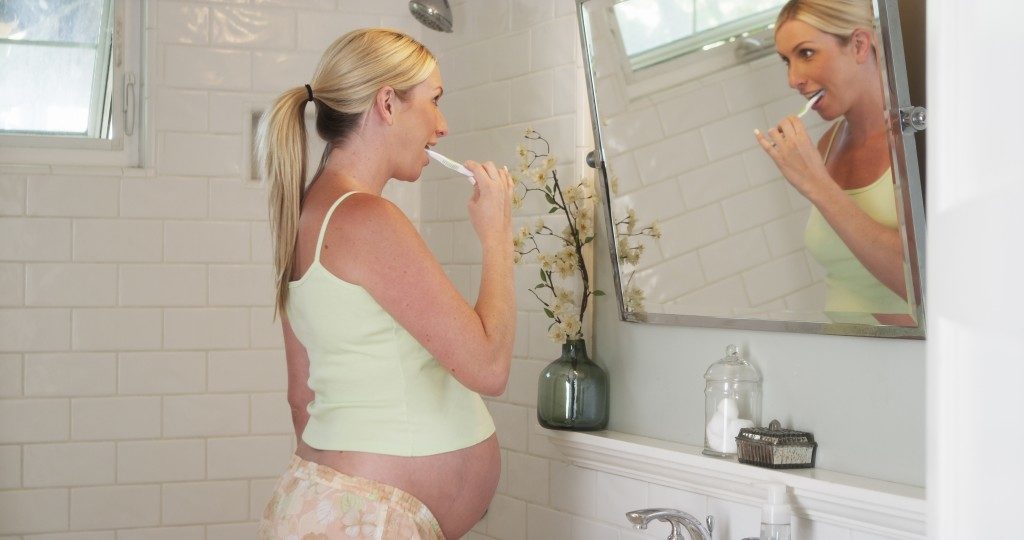During pregnancy, a woman’s body undergoes many changes. Many bodily processes have to adjust to the new situation, which can lead to an increased risk of several health conditions. Pregnancy even affects a woman’s oral health and cause some dental health concerns.
Here are some pregnancy-related oral health issues to observe:
Common Oral Health Concerns During Pregnancy
Some women might go through their whole pregnancy without any dental incidents. But those who do could notice that pregnancy can cause new conditions or aggravate others.
- Eroding Teeth: Because of morning sickness, pregnant women frequently vomit. This exposes teeth to harsh acid stomachs and hastens the erosion of enamel. A woman’s front teeth are particularly vulnerable to this corrosion.
- Tooth Decay: Food cravings lead to an increase of carbohydrates or sugars in a pregnant woman’s diet. If she fails to maintain regular brushing and habits because of her more sensitive gag reflex, tenderness to her gums, or because she’s exhausted, tooth decay can happen more frequently.
- Pregnancy Tumors: Hormones released by a woman’s body during pregnancy can cause her gums to grow excess tissue. These pregnancy tumors commonly appear during the second trimester. Their tendency to bleed easily and raw appearance can cause some concern. These growths, however, are not cancerous and don’t last long after a woman has given birth. Excess plaque may have something to do with these swellings.
- Pregnancy Gingivitis: During pregnancy, a woman’s gums could become more tender and swollen. They could also bleed when she’s brushing her teeth. Dentists call this “pregnancy gingivitis,” and although it shares a lot of symptoms with gingivitis, increased progesterone is responsible for this condition.
Aside from these conditions, a woman might need or want to have a dentist install implants or undergo some other procedure. You’d be right to wonder if it’s safe for her and the baby. This depends on several factors.

Dental Procedures During Pregnancy
Some dental procedures are necessary for the continued health of a pregnant woman. These include preventive dental work that reduce the risk of oral infection. A dentist must schedule regular dental work, such as crowns and cavity treatments, during the optimal period.
During the first trimester, the growing fetus is most susceptible to chemical and environmental factors. Anesthetics and other drugs could cross the placenta and affect the baby’s development more severely at this period. In the third trimester, a pregnant woman can find it very hard to stay lying down on her back for a long time. For these reasons, if a pregnant woman must have a dental procedure, her dentist must schedule it during the second trimester.
A woman should schedule all elective dental treatments, especially those that are purely cosmetic, until after she has given birth. If emergency dental procedures become necessary, the dentist must find the correct amount of anesthetics to administer. It should be as small an amount as possible, but still enough that the pregnant patient experiences no discomfort. The patient must be under no undue stress that can affect her pregnancy. The dentist can also prescribe antibiotics that are safe for pregnant women to consume in case of an infection.
The first thing newborns should see is their mothers’ smiles. With proper dental hygiene, it’s one of the best ways to welcome them to the world.





